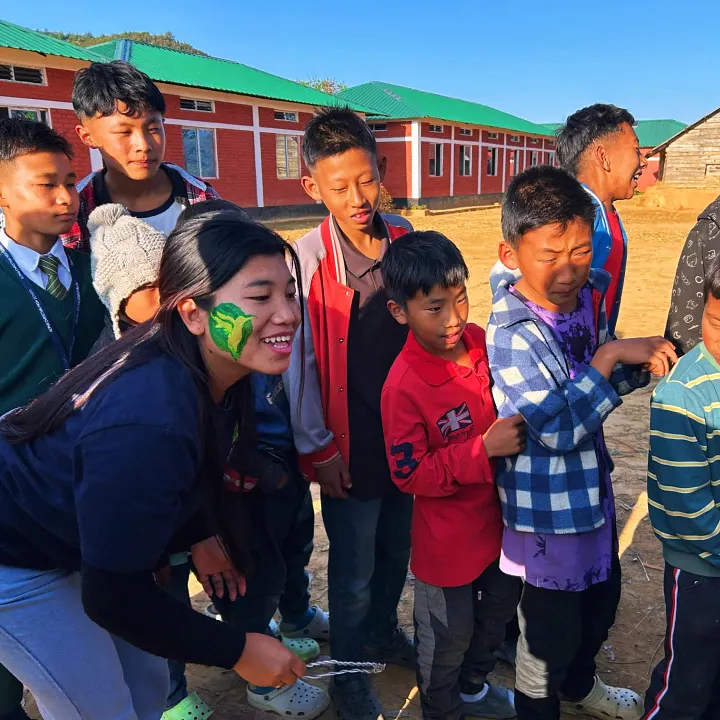Where the stones are heart-shaped and the time has stopped!
“Don’t you fret it, William! I am more than used to bad roads. I’ve lived in the North-East, I will be okay!” I boast as William apologetically tells me about the bad road conditions.
Little do I know what he REALLY means and what I am so obnoxiously oblivious of.
Yes, I have lived in Ijeirong, a village in the deep jungles of Manipur for about two years. It is also true that there were no roads to get there. So much so, that a 4×4 vehicle would barely make the last stretch of 17 kms alive in about 60-70 mins.. And my naïve self believes that it couldn’t get any worse.
Boy, am I mistaken.
I now find myself in a very remote village in Assam named Mualdam. The journey to this village takes me a whole of two days from Pune. After flying to Guwahati for 6 hours, I take a train for another 8-9 hours and then we drive to Mualdam (about 110 kms-120 kms) for another 9 – 10 hours.
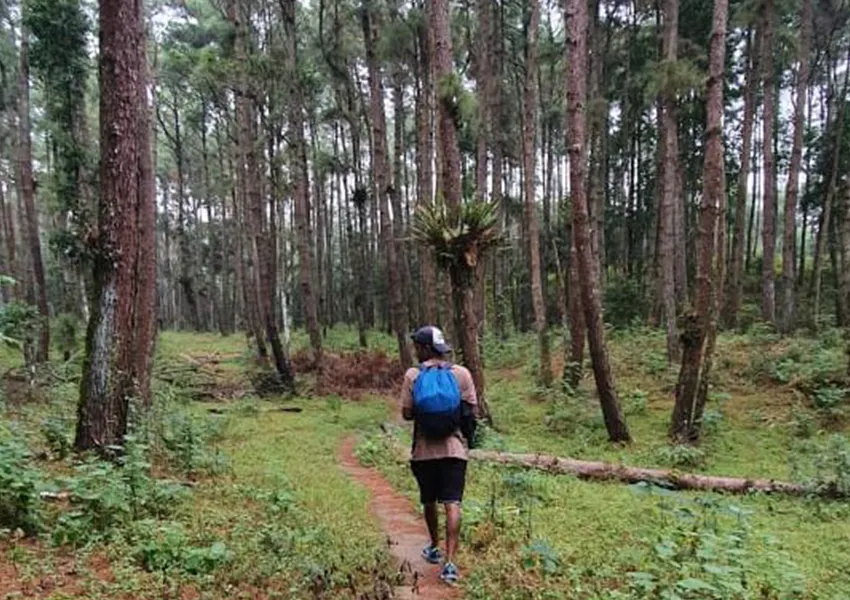
The road to Mualdam was full of pine trees. All these trees were planted by William’s father and his team about a decade ago.
The last leg of the journey is harder than I would have ever imagined. Owing to the heavy downpours of the monsoon, the roads (can I even call them that?) are destroyed beyond repair. The vehicle gets ceremonially stuck in the slush multiple times with not even a sigh from William or my fellow passengers. I am in a pick-up truck and am sharing the one-capacity seat with a fellow traveler. They have given me the ‘best seat’ in the vehicle while the rest of them are standing/hanging/squatting with the luggage in the carrier of the truck. The impeccable hospitality of the North-Easterners has begun and I catch myself smiling with relief and gratitude. Welcome back home, Rucha. 🙂
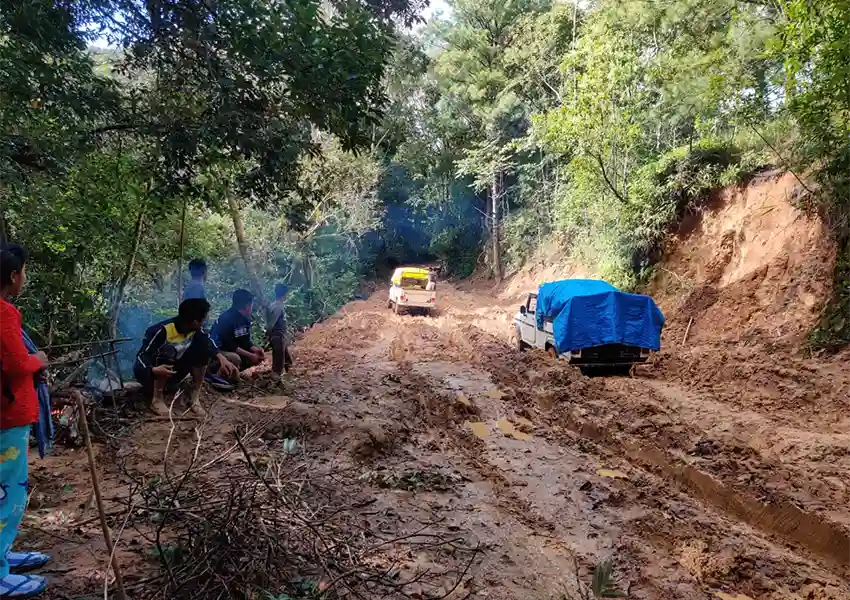
Another pick-up truck stuck in the slush. The travelers on this one have given up trying (or accepted this reality?) at the moment. They have gone and fished some and are seen cooking themselves a meal on the side of the road! 😀 It is going to be a long long night.
Along the journey, William tells me how the condition of the roads deteriorates each monsoon. And I witness this first hand. The kachcha roads don’t even begin to compare to the ‘bad roads’ that I am used to in Ijeirong. It takes us approximately 3 hours to cover a distance of 35 kms. The 4×4 vehicle maneuvers through knee-deep slush and potholes every couple of mts, with the able help of a ‘village rescue team’ that has come to push us out of sticky situations, if it comes to that. And come, it does. Not once, not twice, but multiple times. The 6 superheroes that come on foot through the dark, dense forests of Assam at night, pave ways and push/pull the vehicle out when stuck, all the while laughing about how their clothes have, within seconds, magically changed their colour to a murky brown.
Of course, I am amazed at their compassion, innocence, and helpfulness; but something keeps pricking at me. The Mualdam folk have accepted this to be their dailiness; they have built their lives around these harsh realities. It brings me to the question – why wouldn’t they? Can they afford to keep complaining about how difficult their lives are? If they do, when will they get going with their everyday chores (which are oh-so-many!)?
So they have done something that us city folk will never quite understand- they have embraced the truths of their lives- without a complaint, without any rage, and without any choice.
“Hum kya karega, Miss? Kuch nahi kar sakta.”
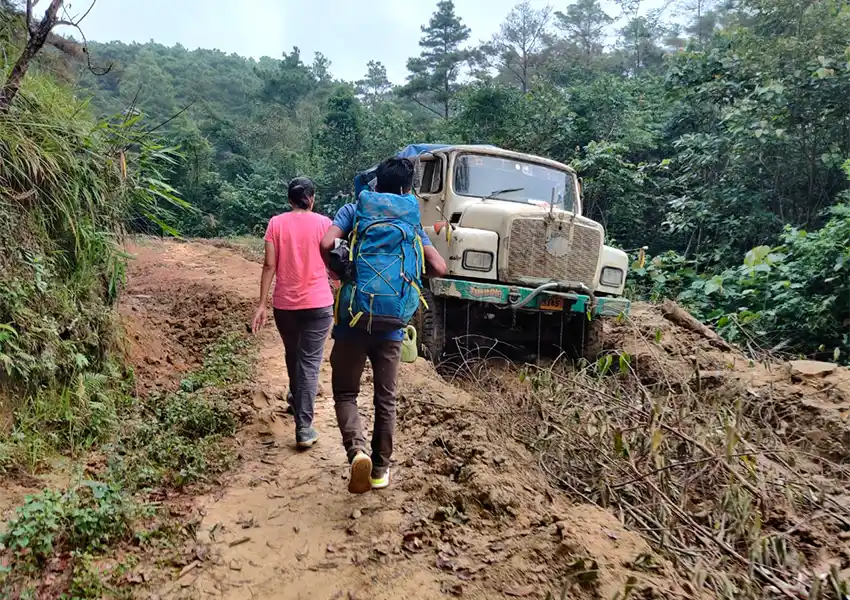
A small glimpse of the road condition. That is a truck stuck in the slush. It has been there for the last 16 hours. The driver and the co-travelers have been trying to take it out since then.
__
As we are driving to the village, we see many heaps of broken stone lying on the side of the road. The authorities have promised the villagers that the road would be made soon. It has been 3 months – the stone piles remain untouched and the roads keep getting worse. For years, their pleas and complaints have gone unheard so now they remain mum and accept it.
I am reminded of my privileges, yet again. An astray thought or two consol me, ‘You are just here for a month, it will be over before you know it.’ I judge myself for these selfish thoughts but observe them as they pass. Before I know it, I am shaken back into reality by a particularly nasty pothole.
__
“Rucha, we have not had electricity in days.”
– “Oh.. How often is there an electricity cut?”
“Haha! You mean how often do we GET electricity? – About a couple of days in a month.”
__
“The people of our village have had really hard lives. It is still so much better right now, and for that, I feel lucky. With the onset of Sunbird Trust’s activities, we will only keep having it easier!”, I get a smile full of hope from William, the 28 year old founder of Haite Memorial Friendship School. “I am so grateful that Sunbird has stepped up to help us start a school here. Had it not been for the organization, I don’t know what we would have done. I believe education is the only way our village and our community can flourish. We did not have a proper school before this, the children would travel for hours on foot to get a sub-standard education. Now, we are trying to bring good quality education to them!”
Apart from education, Sunbird Trust also engages in activities for wholesome growth and development of the community, keeping in mind its motto of ‘Peace Through Education’. One of these is the ‘Biate Language Revival Initiative’, which, in a nutshell, is encouraging the community to navigate back to their Biate roots to help preserve the language. UNESCO has listed Biate as an ‘endangered language’ with the number of language users dropping by the day.
I am thrilled to be here for this purpose and to be of little help to this beautiful cause. There are a number of projects that would be taken up for this. As for me, I would be working alongside the community to make music videos. We have chosen a couple of popular Hindi/English songs and plan to recreate them in Biate with the native language speakers. Not only is the process really fun(ny) but it also ensures that this language can be heard anywhere around the globe with the click of a button on the internet.
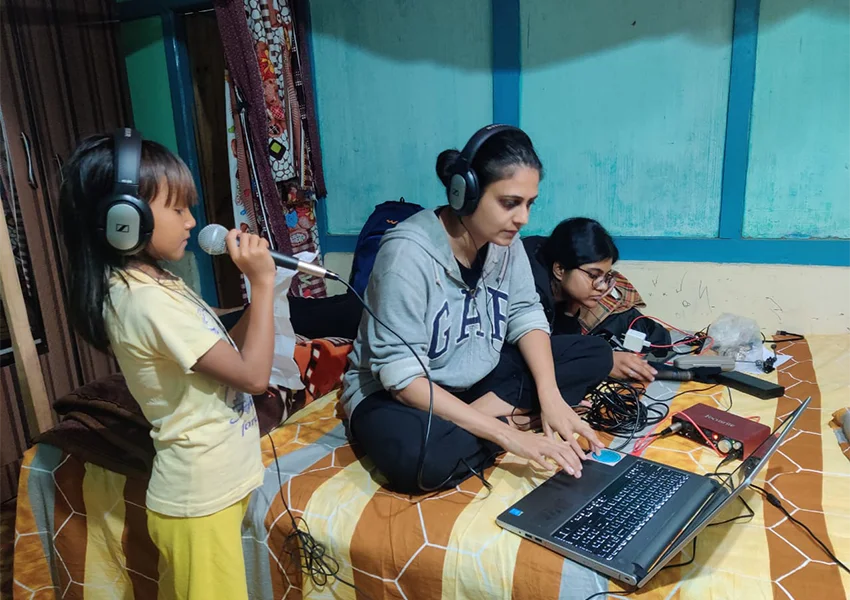
Our recording studio keeps getting a new address as there is no electricity and we got to run hither-tither to charge my laptop.
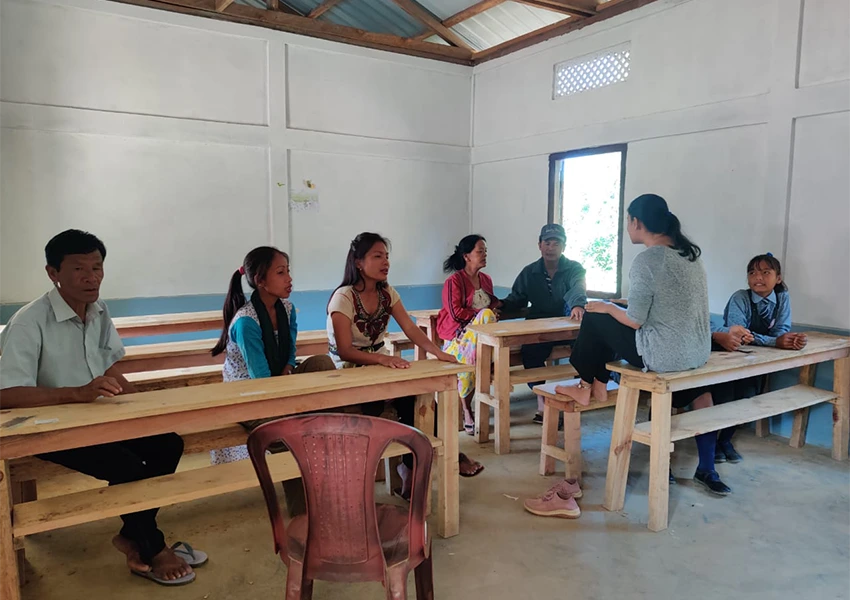
We are working with different age groups so as to ensure participation and equal opportunity for the whole community.
Our aim is to display the way of life, the people, their homes, the food they eat, and the everyday elements of their tribal way of life and tidbits of happiness through our videos. This would make the videos relatable to the youngsters, children, and the entire Biate community; and help the Biate language and community gain popularity, acknowledgment, and well-deserved attention within common masses outside of the NE.
I feel honored to be a small part of this significant and important task. The more days I spend with the locals, the more I am reminded of how little we know and how much we should actually be made aware of.
I am ready and willing to tell you stories about the incredible Biates through these videos. Stay tuned! 🙂
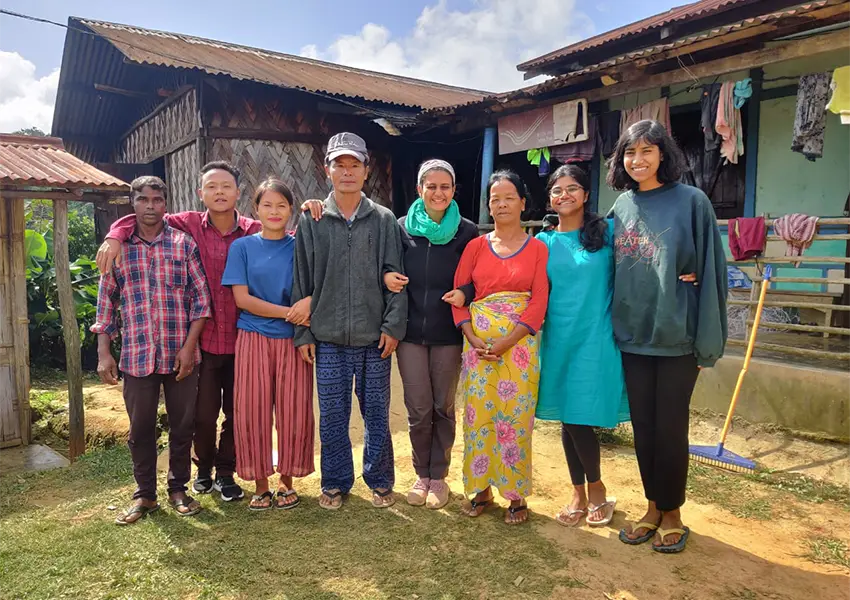
My beautiful host family!




